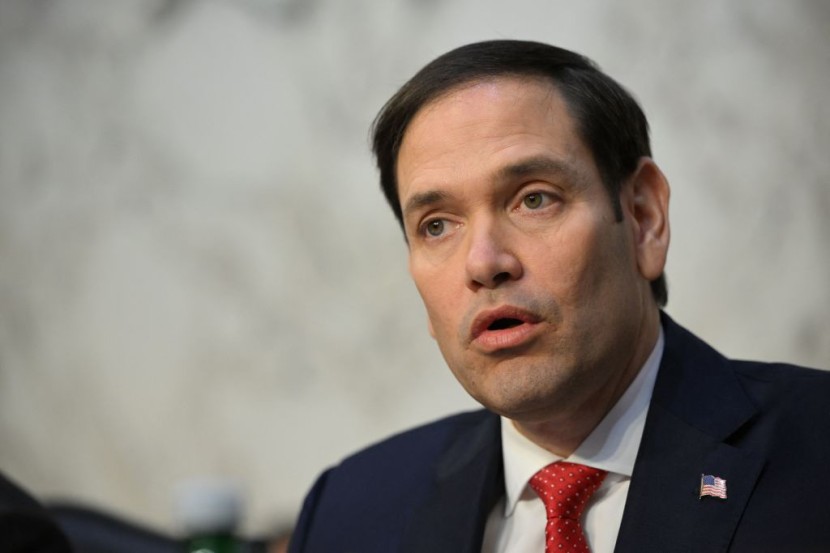
El Salvador has agreed to house violent U.S. criminals and accept deportees of any nationality under an unprecedented agreement with the Trump administration.
The deal, announced on Monday by U.S. Secretary of State Marco Rubio, has sparked concern among critics and human rights organizations.
Rubio revealed the agreement after meeting with Salvadoran President Nayib Bukele, as part of a broader diplomatic effort to advance the White House's migration policies in Central America.
"In an act of extraordinary friendship to our country ... (El Salvador) has agreed to the most unprecedented and extraordinary migratory agreement anywhere in the world," Rubio said.
Under the deal, El Salvador will continue to accept deported Salvadoran nationals who entered the U.S. illegally. Additionally, the country has agreed to "accept for deportation any illegal alien in the United States who is a criminal from any nationality, be they MS-13 or Tren de Aragua, and house them in his jails," Rubio stated, referencing two transnational gangs with ties to El Salvador and Venezuela.
Perhaps most strikingly, Bukele has also agreed to imprison dangerous criminals from the U.S., including American citizens and legal residents.
Bukele confirmed the agreement on X, writing, "We are willing to take in only convicted criminals (including convicted U.S. citizens) into our mega-prison (CECOT) in exchange for a fee." He added that the revenue would help sustain El Salvador's prison system.
The deal has drawn sharp criticism from legal experts and human rights advocates, who warn that the agreement could violate international law.
"The U.S. is essentially proposing to send people to a country that is not the country of origin nor is it necessarily the country that they passed through," said Mneesha Gellman, an international politics scholar and professor at Emerson College.
Gellman described the agreement as "a bizarre and unprecedented proposal" between two right-wing populist leaders. "It's not rooted in any sort of legal provision and likely violates a number of international laws relating to the rights of migrants," she told CNN.
Concerns also stem from El Salvador's harsh state of emergency, in place since 2022, which allows authorities to detain individuals on mere suspicion of gang affiliation. Bukele's administration has boasted a high incarceration rate as a security measure, making El Salvador the most incarcerated country in the world.
However, human rights organizations, including Amnesty International, argue that many of the more than 80,000 people jailed under the emergency measures are innocent. The country's legal system does not differentiate between suspected gang members and convicted criminals, raising fears that deported individuals could be detained indefinitely without due process.
The agreement marks a significant shift in U.S. migration policy and is expected to face legal scrutiny in the coming months.








